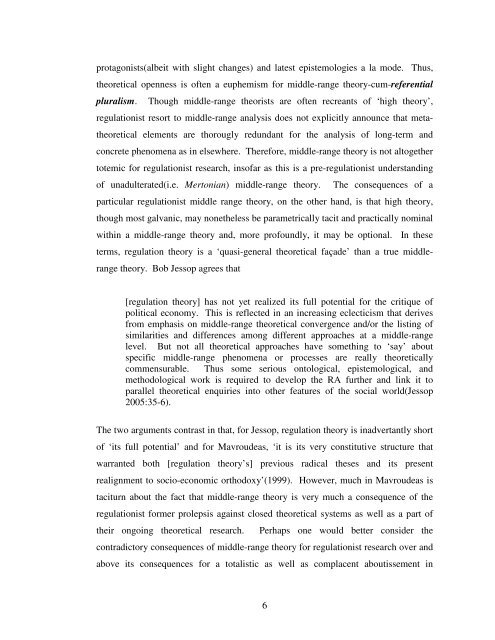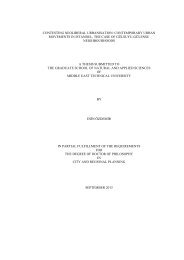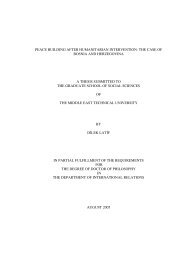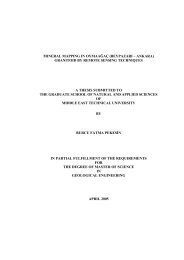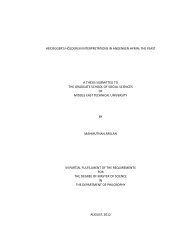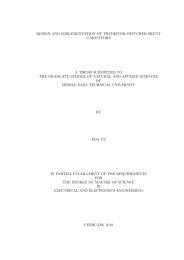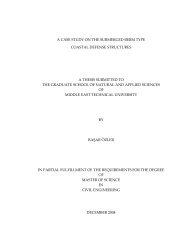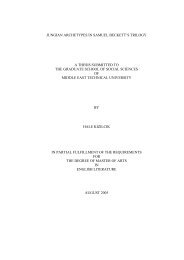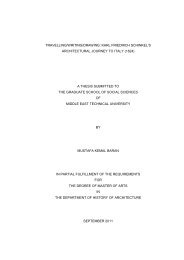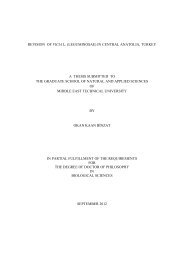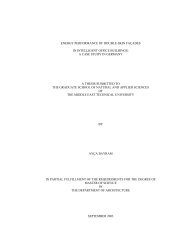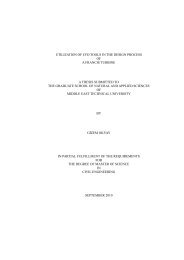View Original - Middle East Technical University
View Original - Middle East Technical University
View Original - Middle East Technical University
You also want an ePaper? Increase the reach of your titles
YUMPU automatically turns print PDFs into web optimized ePapers that Google loves.
protagonists(albeit with slight changes) and latest epistemologies a la mode. Thus,<br />
theoretical openness is often a euphemism for middle-range theory-cum-referential<br />
pluralism. Though middle-range theorists are often recreants of ‘high theory’,<br />
regulationist resort to middle-range analysis does not explicitly announce that meta-<br />
theoretical elements are thorougly redundant for the analysis of long-term and<br />
concrete phenomena as in elsewhere. Therefore, middle-range theory is not altogether<br />
totemic for regulationist research, insofar as this is a pre-regulationist understanding<br />
of unadulterated(i.e. Mertonian) middle-range theory. The consequences of a<br />
particular regulationist middle range theory, on the other hand, is that high theory,<br />
though most galvanic, may nonetheless be parametrically tacit and practically nominal<br />
within a middle-range theory and, more profoundly, it may be optional. In these<br />
terms, regulation theory is a ‘quasi-general theoretical façade’ than a true middle-<br />
range theory. Bob Jessop agrees that<br />
[regulation theory] has not yet realized its full potential for the critique of<br />
political economy. This is reflected in an increasing eclecticism that derives<br />
from emphasis on middle-range theoretical convergence and/or the listing of<br />
similarities and differences among different approaches at a middle-range<br />
level. But not all theoretical approaches have something to ‘say’ about<br />
specific middle-range phenomena or processes are really theoretically<br />
commensurable. Thus some serious ontological, epistemological, and<br />
methodological work is required to develop the RA further and link it to<br />
parallel theoretical enquiries into other features of the social world(Jessop<br />
2005:35-6).<br />
The two arguments contrast in that, for Jessop, regulation theory is inadvertantly short<br />
of ‘its full potential’ and for Mavroudeas, ‘it is its very constitutive structure that<br />
warranted both [regulation theory’s] previous radical theses and its present<br />
realignment to socio-economic orthodoxy’(1999). However, much in Mavroudeas is<br />
taciturn about the fact that middle-range theory is very much a consequence of the<br />
regulationist former prolepsis against closed theoretical systems as well as a part of<br />
their ongoing theoretical research. Perhaps one would better consider the<br />
contradictory consequences of middle-range theory for regulationist research over and<br />
above its consequences for a totalistic as well as complacent aboutissement in<br />
6


